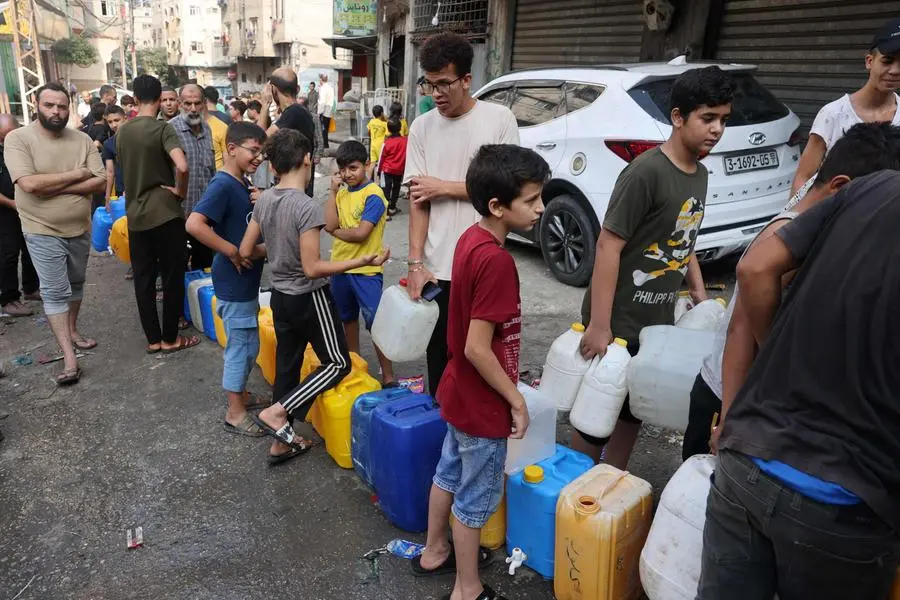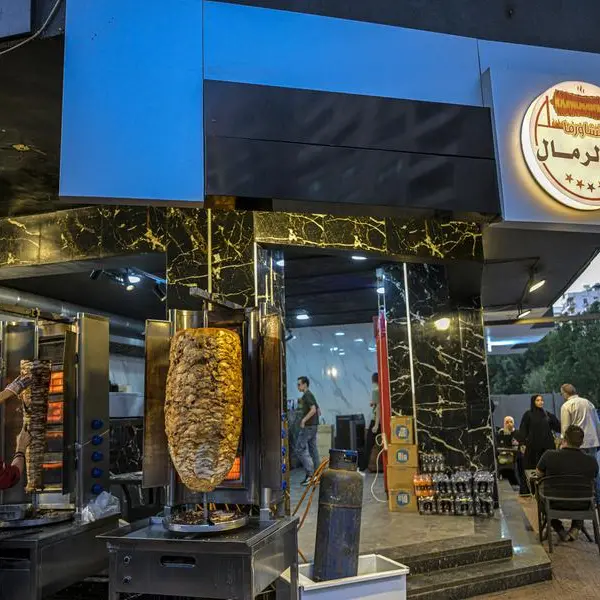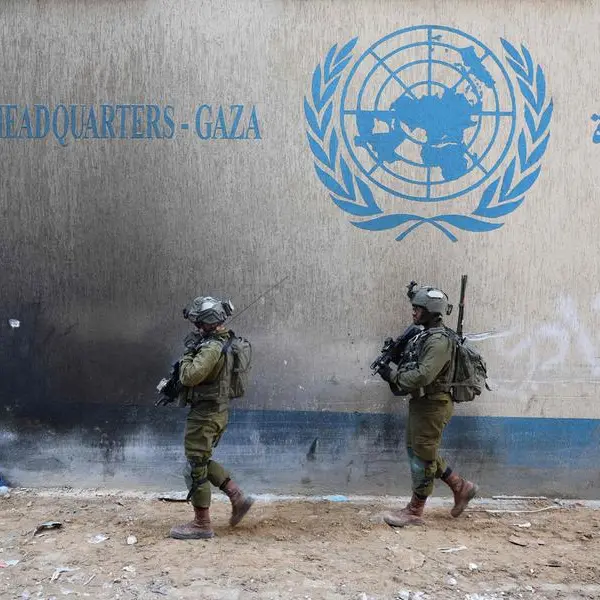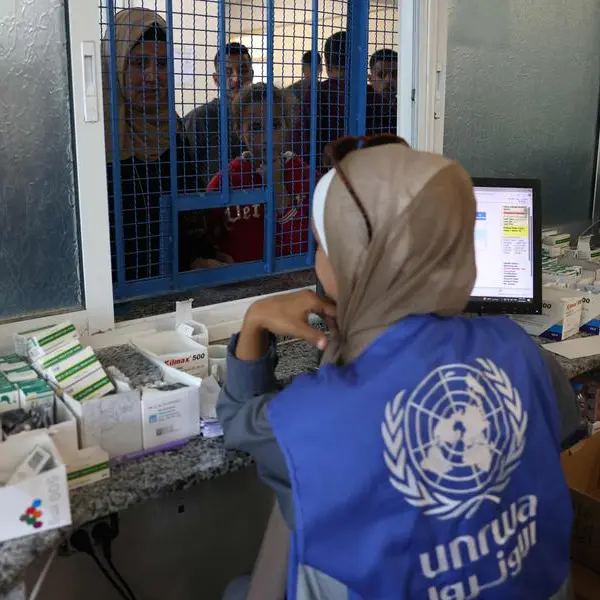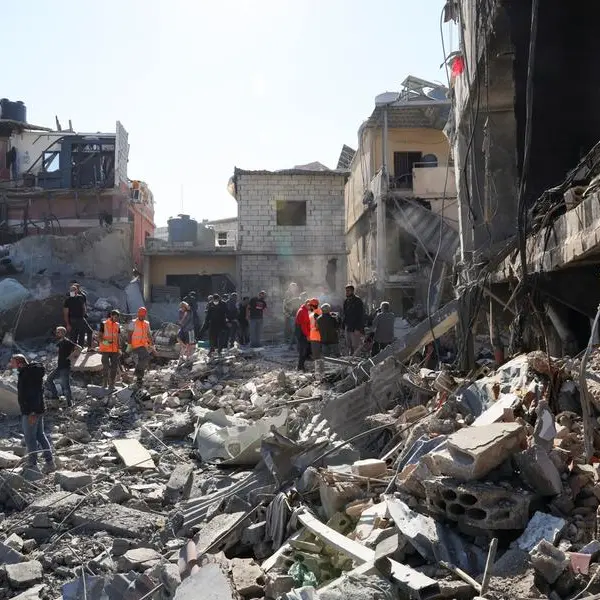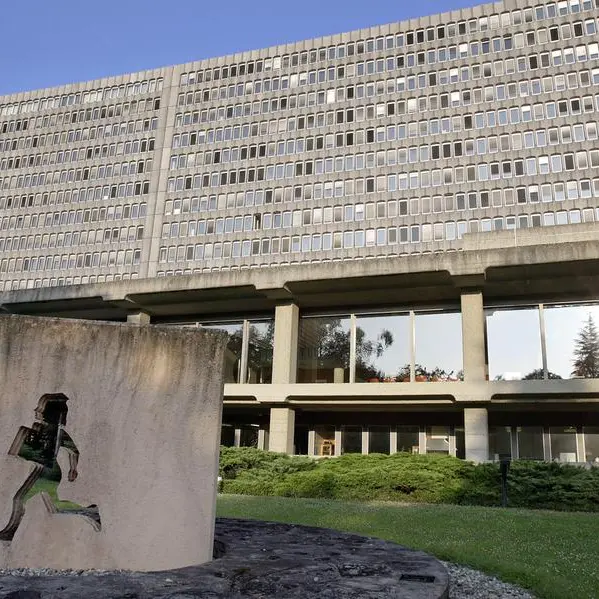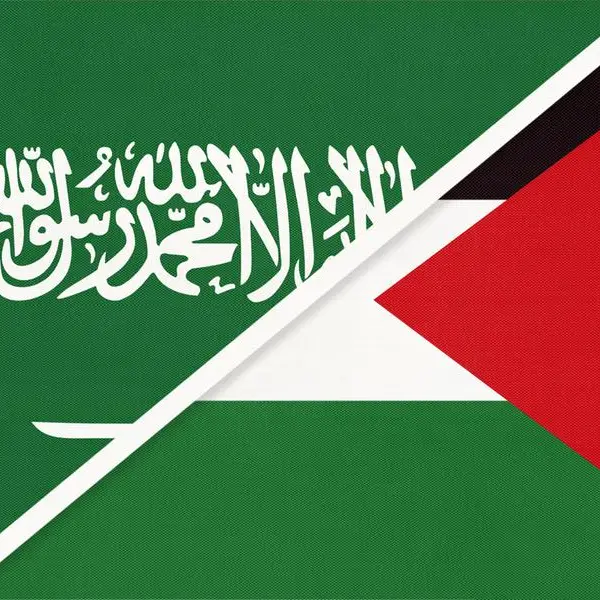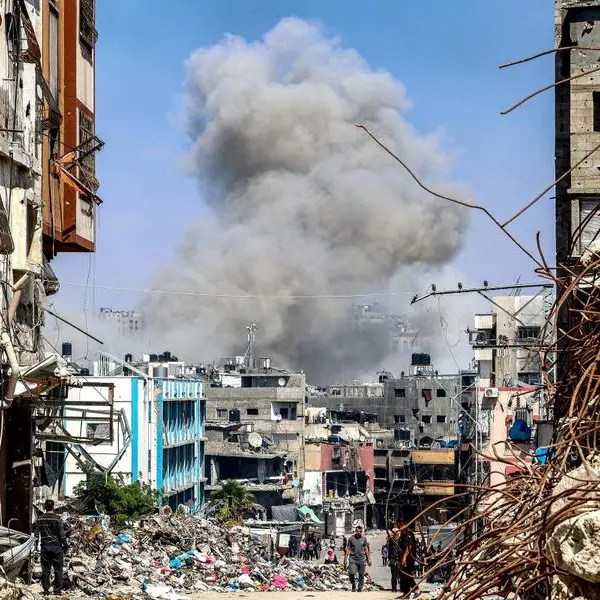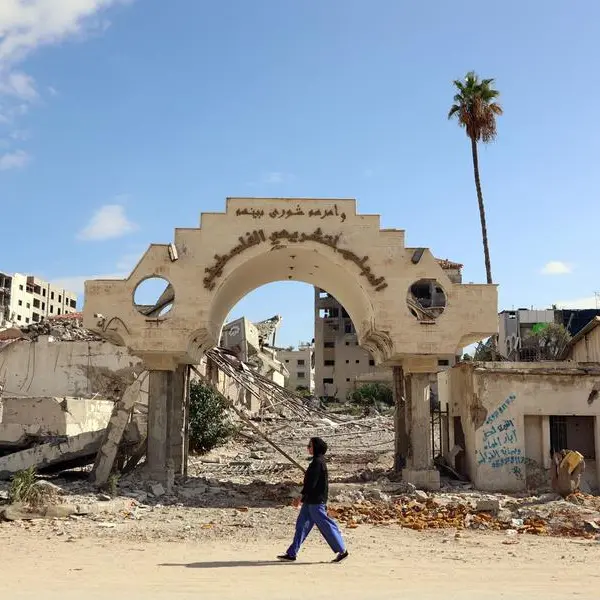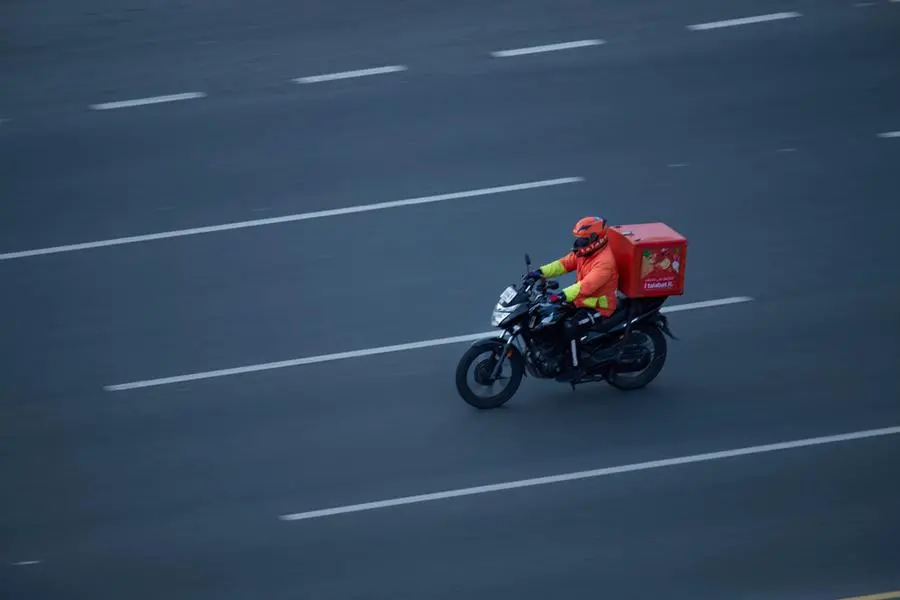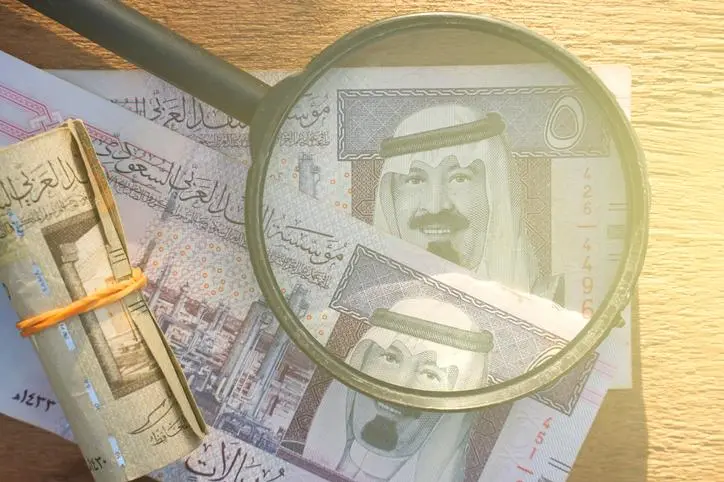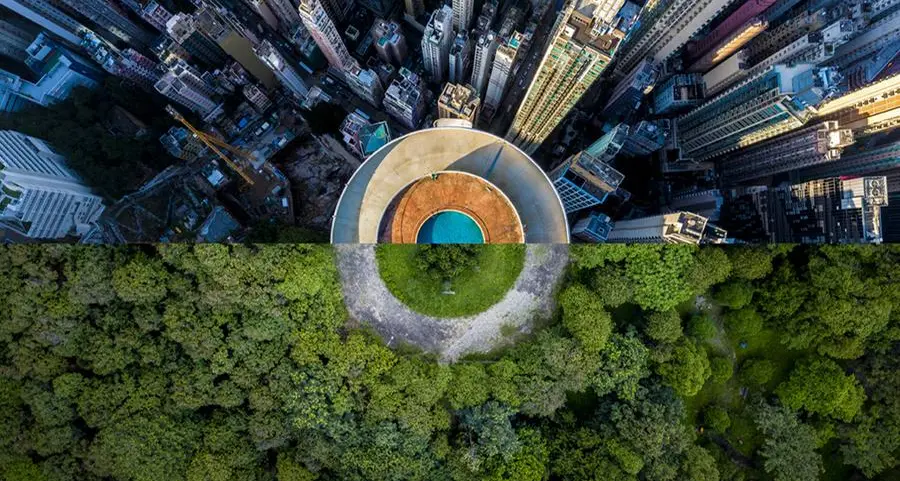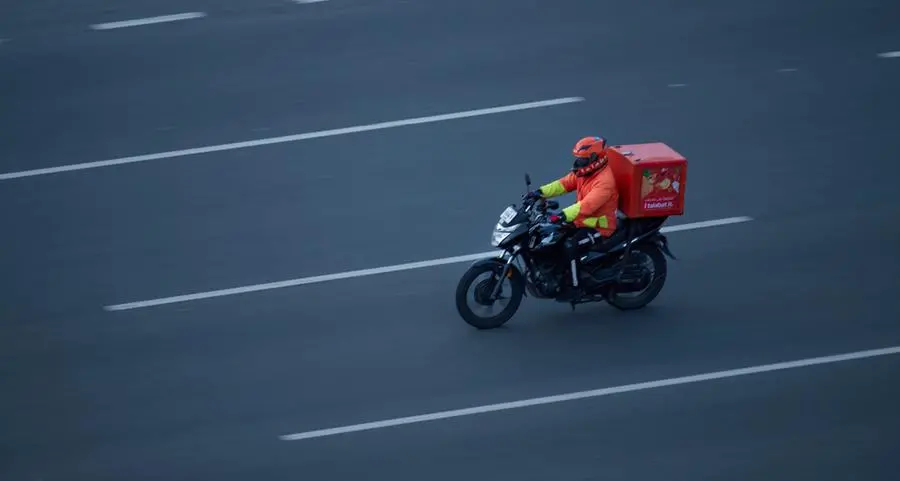PHOTO
Every morning at 8:00 am, Amal al-Robayaa leaves the UN school where she has taken refuge with her extended family since war broke out in Gaza, on a mission to find food.
"It's the first thing I think about when I wake up: how am I going to feed the children today?" she told AFP.
The mouths to feed include her husband, six children, daughter-in-law and two grandchildren.
Under the constant threat of bombardment in Gaza since October 7, Robayaa's daily struggle to support her family has become a deadly assault course.
She picks through the rubble between the school and her home in Shabura neighbourhood of Rafah in the south of Gaza, where she hopes to find neighbours with some flour to make bread.
Her 24-year-old son Suleiman races to a nearby bakery first thing to grab a number in line, before hurrying to a water point.
"I try to fill a canteen or two with water before getting back to the bakery before it opens," Suleiman told AFP.
The tiring task "takes two hours, when you're lucky, but more often four or five", he said.
There is no guarantee of success at the end, either. "We take turns in the line. Two days ago, I waited in the line for four-and-a-half hours and when it was my turn, they told me there was no bread left. I begged them to give me just a few pieces for the children but they refused," said his mother.
- Scarce water -
Robayaa says the apartment block she lived in was destroyed by an Israeli bombardment on the first day of the war triggered by Hamas's attack on Israel, in which 1,400 people were killed, mostly civilians, according to Israeli authorities.
Israel's response has killed more than 10,800 people in Gaza, most of them civilians, according to the health ministry in the Hamas-run territory.
"Even the horse which pulled my son's cart, his livelihood, was killed," she said.
The family spends the day in the rubble of what once was their home.
Later, Robayaa is joined by her sister-in-law Nesrin, 39, who turns up holding up a small sack of flour like a trophy.
The pair put themselves to work immediately, mixing the flour with water. One worked the dough, while the other scavenged in the rubble for pieces of cardboard and wood to make a fire to bake the flatbread.
"Look at me! I'm helping, too!" said nine-year-old Bilal, laying out clothes to dry on slabs of concrete.
What little water there is has to be used carefully, a little for washing clothes and some for a shower.
"In general, the children and I wash every four or five days. Sometimes there is no water and we have to wait longer," said Robayaa, gesturing to her bathroom, which still stood among the rubble.
"It allows us to have a bit of privacy but we're always worried a piece of concrete will fall on our heads," she said.
Her husband, Imed, tries to keep the children occupied, playing old Palestinian songs and some more modern tunes on the ney, the traditional Arab flute.
- Children first -
"My Oud was buried under the rubble but at least I have my flute to keep my spirits up and make the children smile," he told AFP.
By the afternoon, the family had managed to secure 27 litres (seven gallons) of water, a 500-gram (18-ounce) bag of pasta and a packet of sauce -- to be shared between some 50 people.
"We start by feeding the children," Imed said, as the younger members of the family lined up with their plates to get a few mouthfuls of food that quickly disappeared.
After dinner, the parents poured themselves a cup of tea each. The little powdered tea they have left needs to last.
With the sound of drones growing and darkness approaching, the family headed back to the UN school, where they sleep alongside thousands of others.
"We do not have winter clothes for the children and each night now, it's a little colder than the night before," said Robayaa.
"The children don't sleep much and if they manage to sleep, they wake up in the night screaming," added sister-in-law Nesrin.
"So I spend the night waiting for the sunrise, so I can return close to home."
